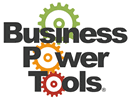Excerpted from the book on conscious entrepreneurship and business management, Business Black Belt
Asking the right questions is the key to getting the most
useful information and validating assumptions.
First, let’s identify a simple problem most of us are afflicted with: the need to be polite.
When I was a little boy, my grandmother told me that there are three things you never ask a lady:
1) How old is she?
2) How much does she weigh?
3) How much money does she have?
Of course, these became the three most important things I wanted to know.
When I was 6, I was tasked with greeting my parent’s dinner party guests.
When the doorbell rang, I would open the door and say, “Hello, how do you do?
My name is Burke!” and shake hands with my strongest grip.
After about 3-4 couples arrived, I opened the door again to see a very large woman.
“Whoa, how much do you weigh?!?” (OMG!) Oops!
She was huge and I just blurted that out.
And, yes, I got in a lot of trouble!
(It’s amusing how kids have no problem asking questions, until we get the idea that it’s bad.
And that question is arguably a bad one to ask anytime!)
However, we grow up learning that there are questions you don’t ask and things you don’t talk about.
In fact, over time we learn that we’re better off not asking many questions at all for fear of making a mistake or committing some kind of social faux pas.
Today, we run the risk of being politically incorrect or outright “cancelled.”
It’s different in business.
The inability to ask probing questions can kill you if you don’t ask crucial questions for fear of offending someone.
We really must ask the kinds of questions that may seem offensive or distrusting:
- “What’s your experience on this project?”
- “How do I know you can come through?”
- “What is it about your experience that makes you the best person for this project?”
- “How can you prove to me that you know what you’re doing?”
When I was hired at The Sharper Image to be the electronics buyer, I had to prove that I had a sense of what would sell.
The VP of Merchandising simply handed me a copy of the catalog and asked me to look through it and guess what sold.
He had the sales reports so he knew exactly, but all I had were my instincts.
Either I had a feeling for it or I didn’t. He was making an important hiring decision and couldn’t afford to fool around.
As it turned out, my guesses were very accurate and I even singled out the worst-selling item in the catalog.
I passed the test and got the job.
If your prospective employee is for real, he or she won’t have any trouble answering tough questions.
- “Have you done this project somewhere else and been successful?”
- “Who can I call as a reference for you?”
- “What happens if you die?” (I ask this of contractors.)
That last one usually draws the response, “Why are you asking me that?”
Here’s why: Way back when, we were using an accounting software package and,
while waiting for version 2.0 to be released, the programmer dropped dead of a brain aneurysm at his desk.
No one else knew how to complete the project!
Now I always ask, “What happens if you get hit by a bus?” (Somehow that seems more friendly.)
We even include provisions for death in some of our sample contract templates.
They are suspect until proven trustworthy(?)
They may seem like questions you’re asking because you don’t trust the person, but you still need to ask these questions to fill in the background. Why should you trust them? Make them prove to you who they are and what they can do.
Plus, you want to hear how someone else answers—so you’re not specifying how you want something done so they can just say yes or no.
If you have a problem or an interesting project, ask someone how he or she would handle it.
Get a feeling for how the person would do things if you weren’t there watching or giving direction.
(Remember: The idea is to someday be at the beach while other people are managing your business the way you would, or better!)
If we’re afraid to ask questions, we end up making assumptions.
You’ve heard this before: to ASSUME means to make an ASS out of U and ME.
According to the American Heritage Dictionary:
as•sump•tion (a-sump’-shun) n.
- The act of taking to or upon oneself.
- The act of taking over.
- The act of taking for granted.
- Something taken for granted or accepted as true without proof; a supposition.
- Presumption; arrogance.
I hate it when I make a deal with or hire someone only to find out that their work ethic or sense of quality isn’t even close to mine.
Now I ask questions like,
“What’s your motivation on this project?
What does a good job look like to you?
What will this look like when it is complete?”
The trick is to recognize an assumption when you make one.
Your wishful thinking may lead you astray. This is dangerous, but you have a simple way out.
When you find yourself thinking/wishing/hoping/presuming (making an assumption),
stop and verify your assumption with a question.
“I’m assuming you will build this gizmo using 4130 Chromoly steel, right?”
That way, you’re not mistaking your assumption for something real.
“If the assumptions are wrong, all that follows is wrong.”
~ Mark Affleck, author & business consultant
What do you mean by that?
My favorite question to ask is: “What do you mean by that?”
We all use the same words often with different meanings behind them, especially when somebody uses a “three-dollar” word.
The person may sound very intelligent, but I’m not really sure he or she even understands what the word means.
Maybe the word stands for definition number one in Webster’s Dictionary, and I’m thinking of definition number two or three.
What does he or she mean by that word?
Take, for example, the word, “cost.” A friend of mine told me, “I bought this at cost.”
I wondered, whose cost? The manufacturer’s cost? The distributor’s cost? The retailer’s cost?
What does cost really mean here?
There are many price points and middle parties in the supply chain,
so what price and cost are we talking about here?
In business, I think any question goes, except, of course, the illegal questions that you can’t ask in interviews.
But when talking about how you’re going to do something with a contractor, partner, whoever, you need to ask a lot of questions.
You might want to ask someone, “How do you make your money on this?”
It’s amazing how people find ways to make money or make deals that will generate income in different ways for different parts of their business.
In a business deal, this question is appropriate.
You want to know what someone is going to do or how he or she will respond in a particular situation.
It all has to do with where your question is coming from.
If you really want to know because you find it interesting or the knowledge would be useful, ask.
Avoid asking questions just to make someone look bad or to embarrass them.
Use that as your gauge to tell if your question is appropriate.
I think you can ask or say just about anything as long as your motive is clean.
Business Black Belt Notes
- If you need to know, you must ask the question.
- Use assumptions—yours and theirs—as the basis for your questions.
- If you’ve got a question, go ahead and ask it.
The scalable business growth plan that expands with you
BizPlanBuilder writes a professional business success plan for your project or company quickly and efficiently. Its organized system of pre-scripted sample business plan templates, flexible financial models, and proven PowerPoint presentation example can be accessed securely online where you can collaborate with your team and advisors.
It’s the fastest and easiest way to apply a systematic approach to adaptation that allows you to maintain your ability to quickly course-correct when external shocks or the unexpected occurs.
BizPlanBuilder also supplements the “business model canvas” and “lean start-up” ideas to provide your team, advisors, investors, and others with the details that make them comfortable and inspired to buy into your goals and vision.
While you are constantly learning and adjusting as you execute, and assessing the changes that occur, you can now easily and incorporate them into your business planning.
BizPlanBuilder works best for unique business concepts. And if you are also seeking funding, it has evolved and been vetted over 30+ years through thousands of deals with banks, SBA lenders, angel investors, and venture capitalists worldwide. Works with Windows & Macs, and all web browsers.
Discover BizPlanBuilder








